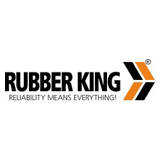Login to
Please Verify Your Phone or Email
We have sent an OTP to your contact. Please enter it below to verify.
Posted:2 months ago| Platform:
Work from Office
Full Time
Finance Manager in a manufacturing company , such as a tire manufacturing company , would have a slightly specialized role compared to other industries. While the core responsibilities around budgeting, financial planning, and analysis remain the same, there are industry-specific nuances that they would need to handle to ensure the company's financial health and profitability. Key Responsibilities of a Finance Manager in a Tire Manufacturing Company: Costing & Product Pricing : Costing : Tire manufacturing involves various costs such as raw materials (rubber, chemicals, steel), labor, machinery, utilities, and logistics. The finance manager will be responsible for calculating the cost of goods sold (COGS) and ensuring accurate costing models for the production process. Pricing : They would be involved in setting the right pricing strategy for products based on production costs, competitor pricing, and profit margins. They also need to factor in changes in raw material prices and inflation. Inventory Management : Managing the inventory of raw materials and finished goods is crucial. The finance manager needs to ensure that there's enough stock to meet production needs without overstocking, which can lead to high storage costs or tying up capital. They will monitor inventory turnover rates, ensuring that the company can quickly produce tires in response to demand, without over-purchasing materials that could expire or degrade. Capital Expenditure (CapEx) Planning : In a manufacturing company, substantial investments are made in machinery, equipment, and factory infrastructure. The finance manager would be responsible for capital budgeting, evaluating the ROI (Return on Investment) for new equipment, and securing financing for such investments. Assessing maintenance costs and depreciation of equipment is essential in ensuring that the company maintains operational efficiency and minimizes unexpected costs. Cash Flow Management : Manufacturing companies often have significant upfront costs and longer production cycles, which can lead to cash flow challenges. The finance manager must ensure that theres enough cash flow to meet operating expenses, including payroll, material costs, and overhead. They would also manage payment cycles for suppliers and collect receivables from customers on time to maintain liquidity. Financial Reporting & Analysis : Preparing accurate and timely financial reports (monthly, quarterly, and yearly) to assess the companys profitability and financial position. Analyzing financial statements to determine the company's performance in terms of profitability, efficiency, and solvency. Conducting variance analysis to compare actual costs and revenues with forecasts, and investigating any discrepancies. Supply Chain & Vendor Relationship Management : Collaborating closely with the procurement team to ensure that raw materials are sourced at the best prices and terms, while maintaining quality. Managing supplier payment schedules and ensuring that relationships with key vendors remain strong to avoid production delays. Risk Management : Manufacturing companies face numerous financial risks, including fluctuations in raw material prices (e.g., rubber, oil), exchange rate risks if sourcing globally, and potential environmental or regulatory risks related to manufacturing. The finance manager is responsible for identifying these risks and developing strategies to mitigate them, such as using hedging or long-term contracts with suppliers to lock in prices. Compliance & Regulatory Reporting : Tire manufacturing companies are subject to various regulatory standards regarding product quality, safety, and environmental impact. The finance manager ensures the company complies with these regulations and accurately reports taxes, environmental charges, and other legal obligations. They also ensure compliance with international standards if the company is involved in export, such as dealing with customs duties or tariffs. Budgeting & Forecasting : Creating a detailed budget that reflects the cost of production, expected sales volume, and capital needs for expansion or modernization. Forecasting future financial performance and working with other departments to adjust plans based on changing market conditions (e.g., demand for tires, fuel prices affecting transportation costs). Sustainability & Cost Optimization : In tire manufacturing, sustainability is becoming increasingly important due to environmental concerns, such as tire recycling, energy consumption, and waste management. The finance manager may oversee initiatives that reduce operational costs and minimize environmental impact, such as investing in energy-efficient technologies or sustainable raw materials. Skills & Expertise Required: Industry Knowledge : Familiarity with the unique aspects of manufacturing finance, such as cost accounting, production costing, and capital budgeting. Supply Chain Management : Understanding of supply chain dynamics and how they impact financial performance. ERP Systems : Proficiency in Enterprise Resource Planning (ERP) systems (like SAP, Oracle, or others) that integrate financial data with inventory, procurement, and production. Data Analysis : Strong skills in analyzing large datasets and drawing actionable insights from them to optimize costs and improve profitability. Regulatory Knowledge : Understanding industry-specific regulations and tax laws governing manufacturing and international trade, including compliance with environmental standards. Preferred candidate profile : Balance Sheet, Costing, Auditing, All Statutory Audits & Compliances, Advance Tax, TDS & GST return, Banking Payments, Receivable, Vendor Management, Submission of Monthly Reports, Corporate Tax, MIS, Accountability, Risk Management, Financial Management, Resolving day to day accounting Issue. Monitoring Petty & Cash Expenses can whatsapp (7574805076) their cv with salary and experience details. Regards HR Department 7574805076

Upload Resume
Drag or click to upload
Your data is secure with us, protected by advanced encryption.
Bengaluru
INR 27.5 - 32.0 Lacs P.A.
Mumbai
INR 10.0 - 15.0 Lacs P.A.
INR 14.0 - 19.0 Lacs P.A.
Mumbai
INR 10.0 - 15.0 Lacs P.A.
INR 6.0 - 13.0 Lacs P.A.
INR 3.0 - 7.0 Lacs P.A.
INR 27.5 - 32.0 Lacs P.A.
INR 40.0 - 50.0 Lacs P.A.
INR 16.0 - 18.0 Lacs P.A.
Thane, Bengaluru
INR 12.0 - 14.0 Lacs P.A.